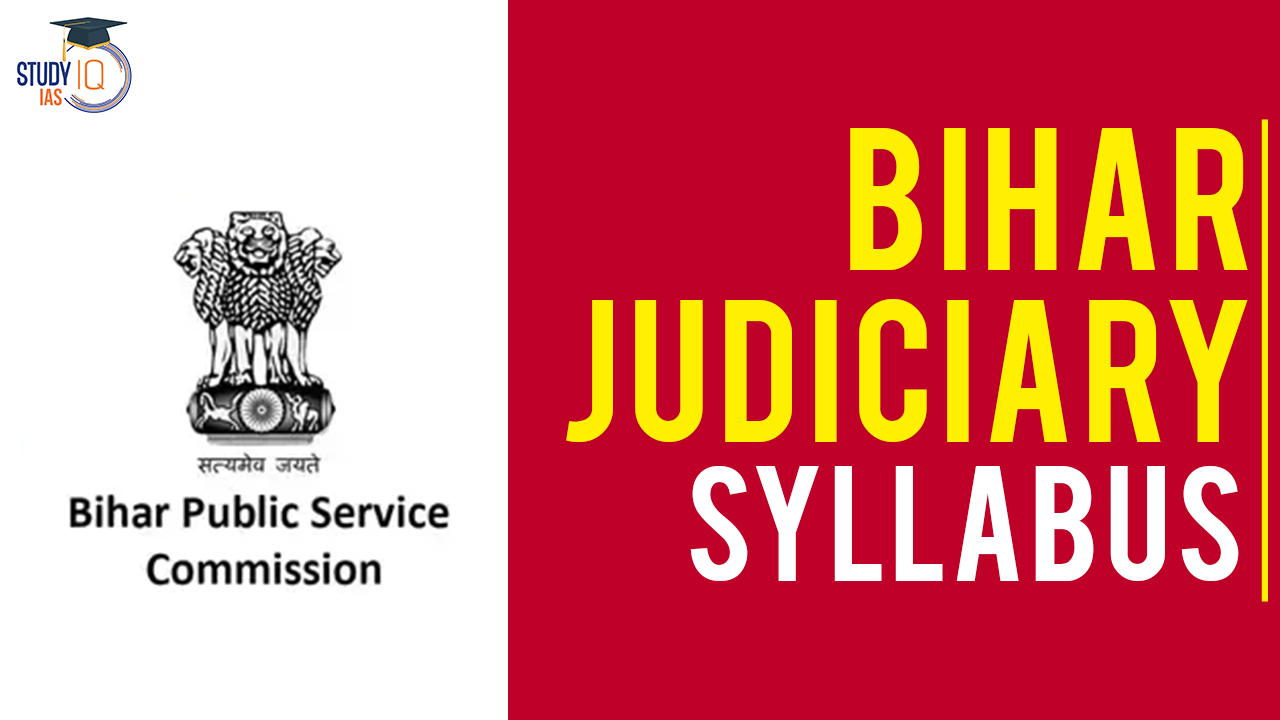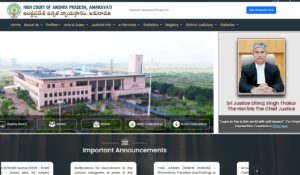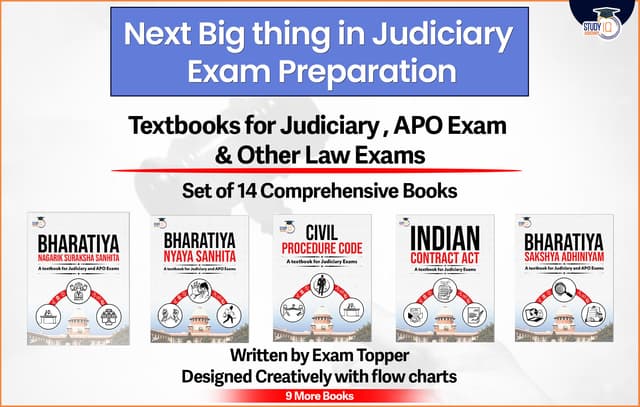Table of Contents
Bihar Civil Judge recruitment is conducted by the Bihar Public Service Commission (BPSC). The Bihar PCS J recruitment is comprised of three distinct stages: the Preliminary Examination, the Main Examination, and the Interview. Each of these stages has its own specific syllabus. The candidates who are preparing for the Bihar Judiciary examination should be well-informed about the syllabus details.
Bihar Judiciary Syllabus 2024
The Bihar Judiciary Syllabus is released along with the Bihar Public Service Commission’s official notification. Candidates preparing for the Bihar PCS J recruitment should refer to the BPSC J Syllabus. As a result, candidates who meet the eligibility requirements and have an interest in this opportunity are strongly urged to carefully examine the upcoming notification and proceed with their applications for the esteemed position within the Bihar Public Service Commission.
Bihar Judiciary Exam Pattern
Candidates who aspire to move on to the subsequent stages of the examination must achieve a score in the preliminary stage that surpasses the minimum required threshold. The Bihar Judiciary Syllabus for encompasses various topics and materials designed for both the preliminary and main examinations. Therefore, the initial step in preparing for this examination is to become well-acquainted with the course outline.
Bihar Judiciary Prelims Exam Pattern
| Exam Paper | Topics Covered | Marks |
| General Knowledge |
|
100 |
| Law |
|
150 |
Bihar Judiciary Mains Exam Pattern
| Exam Paper | Topics Covered | Marks |
| General Knowledge & Current Affairs |
|
150 |
| Elementary General Science |
|
100 |
| General Hindi |
|
100 |
| General English |
|
100 |
| Law of Evidence and Procedure |
|
150 |
Optional Subjects (Choose 3 out of 5):
- Constitutional & Administrative Law of India
- Hindu Law and Mohammedan Law
- Transfer of Property, Principles of Equity, Law of Trust, and Specific Relief Act
- Law of Contracts and Torts
- Commercial Law
Bihar Judiciary Prelims Syllabus 2024
The Bihar Judiciary Prelims Exam is an objective examination comprising two papers:
- Paper 1: General Knowledge
- Paper 2: Law. General knowledge
Which is conducted for 100 marks, and law paper is conducted for 150 marks.
General Knowledge
1 – History of India
- Ancient and Medieval Indian History
- Modern Indian History
- Indian national movement
- Indian Constitution and Polity
- Landmarks in world history
- World Wars and their Impact on India
- Post-Independence Consolidation and Reorganization of States in India
- Social and cultural history of India
- Economic and political changes in India after independence
2 – Indian Polity and Economy
Indian Polity:
- Constitution of India: Preamble, Fundamental Rights and Duties, Directive Principles of State Policy, Union and State Legislatures, Judiciary, Executive, and Electoral Systems.
- Centre-State relations, Inter-State relations, Emergency Provisions, and Constitutional Amendments.
- Public Administration and Governance, Indian Political System, Political Parties and Pressure Groups.
- Local Self-Government and Panchayati Raj System.
Indian Economy:
- Basic concepts of Indian Economy, National Income Accounting, GDP, and GNP.
- Poverty, Unemployment, and Inflation in India.
- Indian Agriculture, Industry, and Service sector.
- Indian Banking and Financial System, Fiscal Policy, and Monetary Policy.
- International Trade and Balance of Payments.
3 – Geography
- In Geography, the emphasis will be on the geography of India and Bihar.
- Questions on the Geography of India and Bihar will relate to the country’s physical, social, and economic Geography, including the main features of Indian agricultural and natural resources.
- You must know about Bihar’s geography, geographical division, and major river systems.
- Here is a list of topics that are commonly included in the syllabus for geography:
- Physical Geography: Earth, Atmosphere, Hydrosphere, Biosphere, Lithosphere, Climatology, Oceanography, etc.
- Environmental Geography: Biodiversity, Environmental Hazards, Environmental Management, and Sustainable Development.
- Cartography: Map-making, Types of Maps, Map Projections, and Remote Sensing.
- Geographical Techniques: Fieldwork, Surveying, Geographical Information Systems (GIS), and Statistical Techniques.
4 – Indian National Movement
- Questions on the Indian National Movement will relate to the nature and character of the nineteenth-century resurgence, growth of nationalism, and attainment of Independence.
- You must answer questions on Bihar’s role in India’s freedom movement, including the following:
- Introduction to the Indian National Movement and its historical significance.
- The factors that led to the rise of the Indian National Movement.
- Important events and personalities associated with the Indian National Movement, such as the Revolt of 1857, the Swadeshi Movement, the Non-Cooperation Movement, the Quit India Movement, and more.
- The role of various organizations and leaders in the Indian National Movement, such as the Indian National Congress, Muslim League, Bhagat Singh, Mahatma Gandhi, and others.
- The impact of the Indian National Movement on India’s struggle for freedom, including the emergence of nationalism, cultural renaissance, and economic reforms.
- The legacy of the Indian National Movement and its relevance to contemporary Indian society.
5 – General Science
- Questions on General Science cover general appreciation and understanding of science, including everyday observation and experience, as may be expected of a well-educated person who has not made a particular study of any scientific discipline.
Law Paper
- Commercial Law
- Law of Contracts and Torts
- Constitutional & Administrative Law of India
- Hindu Law and Muhammadan Law
- Law of Evidence and Procedure
- Sale of Goods Act
- Negotiable Instrument Act
- Company Law
- Partnership Act
- Transfer of Property Act
- Principles of Equity
- Law of Trust and Specific Relief
Bihar Judiciary Mains Syllabus 2024
The Mains Exam is the second stage of the selection process, after the Preliminary Exam. Only those candidates who qualify for the Preliminary Exam can appear for the main exam.
Compulsory Subjects
- General Knowledge & Current Affairs: 150 marks
- Elementary General Science: 100 marks
- General Hindi: 100 marks
- General English: 100 marks
- Law of Evidence and Procedure: 150 marks
General Studies
- History of India and Bihar
- Culture of India and Bihar
- Geography of India and Bihar
- Current events of national and international importance
Elementary General Science
- Everyday science
- Elementary general science
General Hindi
- निबंध
- व्याकरण
General English
- General understanding of the language
- Written English
- Passage Writing
- Precis Writing
- Letter Writing
Law of Evidence and Procedure
- Indian Evidence Act
- Civil Procedure Code
- Arbitration and Conciliation Act 1996
- Code of Criminal Procedure 1973
- Provincial Small Cause Courts Act
Optional Subjects
- Constitutional & Administrative Law of India
- Hindu Law and Mohammedan Law
- Transfer of Property, Principal of Equity, Law of Trust, and Specific Relief Act
- Law of Contracts and Torts
- Commercial Law


 AP High Court Exam Date 2025 Out: Check ...
AP High Court Exam Date 2025 Out: Check ...
 State PSC Exam 2025, Latest Updates for ...
State PSC Exam 2025, Latest Updates for ...
 Jharkhand High Court Assistants Admit Ca...
Jharkhand High Court Assistants Admit Ca...












